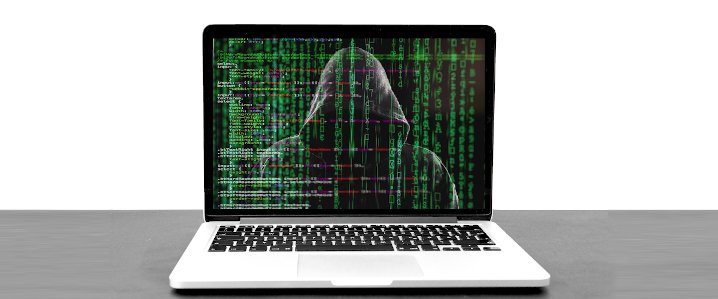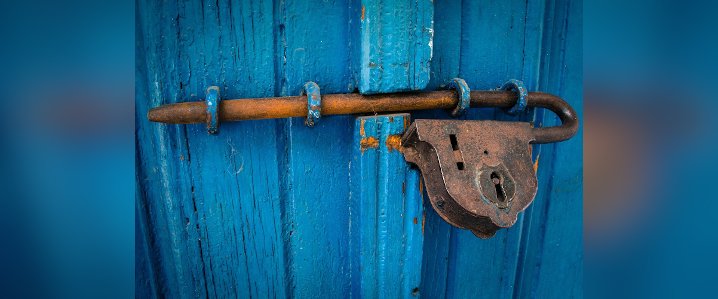
While it may not be too difficult to protect your privacy in the physical world, it is much harder to protect yourself online. Your “digital footprint,” or the bits of useful information about yourself in the online world, is spread far and wide.
To make it worse, there is an endless amount of people who actively work on gathering any information about you that they can get their hands on. In some cases, they know more about you than even you do.
Some of these people are online criminals. Others are in the business of making money off your information. Either way, it’s up to you to protect yourself online.
Why it is Important to Protect Yourself Online
When you’re not protecting your digital footprint, you’re putting yourself at risk for all kinds of violations- from identity theft to cyber-harassment or even destruction of your livelihood or reputation. Online privacy may seem like a luxury but if you don’t protect yourself online, it can quickly turn into something that’s life-threatening.
Risks if you do NOT Protect Yourself Online
Here are just a few examples of the risks if you do not protect yourself online:
- Identity Theft: Your personal information is valuable to other people so it’s not surprising that someone would try to steal it. You can protect yourself by having your passwords be case-sensitive, making sure that you’re logging out of every site after you use it, and even enabling two-factor authentication wherever possible.
- Text Message Spam: If you’re not careful about where your phone number goes online, it could end up in the hands of spammers. You can protect yourself by having strong passwords on every site, never giving out personal information over text messages, and not revealing your number to anyone unless necessary.
- Cyber Harassment: Online harassment is a serious problem even though most platforms have banned it. It’s important to protect yourself online by using strong passwords, never replying to messages from people you don’t know, and reporting the person if they break the rules of whatever site they’re on.
- Online Reputation: You can delete your information from sites but it will still pop up in a Google search for a while. You can protect yourself by only putting information about yourself online that you’re comfortable with everyone seeing, never replying to messages from people you don’t know, and using Google’s “right to be forgotten” service if necessary.
- Online Tracking: There are many different ways in which your online activities can be tracked. You may not think it’s important, but you do need to know when you’re being monitored so that you can take steps to protect yourself.
You can see that there could be a lot at stake if you don’t protect yourself online.
What Information You’re Giving Away Without Realizing It

One big issue that people have when they do not protect themselves online is that they don’t realize how much information about themselves is being given away by actions that they think are inconsequential.
Here are some examples of information you may be revealing without realizing it:
- IP Address: Your IP address is a unique number that your ISP (Internet Service Provider) assigns to you when going online. If you’re not using a VPN while online (more about VPNs below), your ISP or any website you visit can log your IP address. That can then lead to your identification because ISPs have metadata that law enforcement agencies can request.
- Phone Number: Uploading a phone number onto a site means that anybody can use it to send you text messages, even if you didn’t mean to give it out. Some sites will allow you to change the number later but not all of them do so it’s best to take care where you put it.
- Email Address: Even if you never put an email address on a forum or social media site, somebody might be able to identify you by finding it through your other information. It’s best not to put any personal information out there unless absolutely necessary.
- Credit Card Information: If you do anything online, it’s a good idea not to keep your credit card information on file because it can be accessed if somebody hacks into the company’s database.
- Online Browsing Habits: One way in which your online activity can be captured is through tracking your browser’s cookies. This information can range from the posts you visit, the text you type, and the searches you make. This information about your browser’s activities makes it possible for somebody to track who you are and what you’re doing.
This is a lot of information about yourself that you could be giving away. It makes it worth the trouble to protect yourself online.
5 Steps to Protect Yourself Online

Now that you understand why you need to protect yourself online, let’s look at 5 steps you can take to protect yourself online:
1. Use Strong Passwords and Store Them Securely
It’s important to create strong passwords to keep all of your information safe. Here are some tips on how to do it:
- Don’t use words from a dictionary or any personal information.
- Use at least 8 characters and include symbols, numbers, and capital letters. Having a complicated password is the best way to be sure that people can’t hack into your account.
- You should also use uppercase letters, lowercase letters, and numbers for extra security. Include symbols if you can but avoid anything that looks like a word in plain English because hackers may have an easier time guessing it.
It’s best to store your passwords digitally and make sure that you’re keeping them secure. The best way to do that is by using a password manager like 1Password or my choice, LastPass.
These programs can generate super long, complicated passwords for you and then encrypt all of the data on your hard drive so it can’t be accessed without your master password. They also make it easy to log into websites or apps.
2. Use Two-factor Authentication when Logging on to Online Accounts
Two-factor authentication is a much more secure way of keeping yourself safe online than only using a password. It takes the idea of multi-factor authentication one step further because it requires not only your password but typically also a 6-digit code that gets sent to you, or generated by a two-factor authentication app on your phone.
Two excellent free two-factor authentication apps are Authy or my choice, Google Authenticator. Both these apps are available from the Google Play Store or Apple App Store on your phone.
3. Use a VPN when Connecting to the Internet
A virtual private network or VPN is an online service that gives you a new IP address so it’s harder for people to track your activity. When you connect to the Internet using a VPN, not even your ISP can log the sites you visit because your connection to the VPN service is encrypted. If you’re not using a VPN while online, it’s all too easy for your IP address to be logged and for you to be identified. You should also use a VPN when connected to a public Wi-Fi network.
There are a number of excellent VPN providers. My favorite is ProtonVPN*. I picked them because of their impeccable reputation in the online privacy industry. They provide a suite of products that protect online privacy, including ProtonMail, ProtonCalendar, and ProtonDrive (secure online storage).
4. Use a Browser that Stops Online Trackers
T protect yourself online while browsing, pick a browser that offers privacy protection options that block online trackers and other privacy invasion attempts.
Mozilla has done a good job with this, which you can see with their Firefox browser. You can pick the level of privacy that you want on Firefox. One of the privacy protections that they offer is to stop websites from tracking your location automatically, which is a huge improvement over default browsers.
The Brave browser is a great way to protect yourself online. It allows you to browse the internet with end-to-end encryption and it blocks ads and trackers. In addition, it has a built-in tracker blocker which also helps to stop websites from tracking your location. If you’re not currently using the Brave browser, I highly recommend giving it a try.
5. Use Secure Messaging (and Not Regular Text Messages)
Text messages sent via SMS are not encrypted and can easily be intercepted and read.
One way to help protect yourself online when using messaging apps is to use an end-to-end encrypted app like Signal, Telegram, or WhatsApp.
Of the three, I consider Signal to be the safest and you can use it for regular text messages as well. WhatsApp has the most users and the call quality is excellent, but Facebook owns it and there have been questions about its privacy policy. I use all three apps.
“End-to-end encryption” means that the message, picture, video, or other files won’t get intercepted along the way because it’s encrypted by one device before being sent to another. Sending messages through these systems means that they can’t be intercepted and read by anybody else while in transit. That includes government surveillance and hackers!
To Wrap It Up
If you want to protect yourself online, you must use strong passwords and store them in a secure location. You should also take the time to set up two-factor authentication for your most important accounts and opt out of invasive tracking (for example through using Brave browser). Finally, make sure that you’re using secure messaging apps and when browsing the web, you’re always connected to a VPN.
Back from Protect Yourself Online to Online Issues
Affiliate Disclaimer: Links marked with an asterisk (*) are affiliate links. If you buy the item linked to, I get paid a small amount. It will not cost you more.